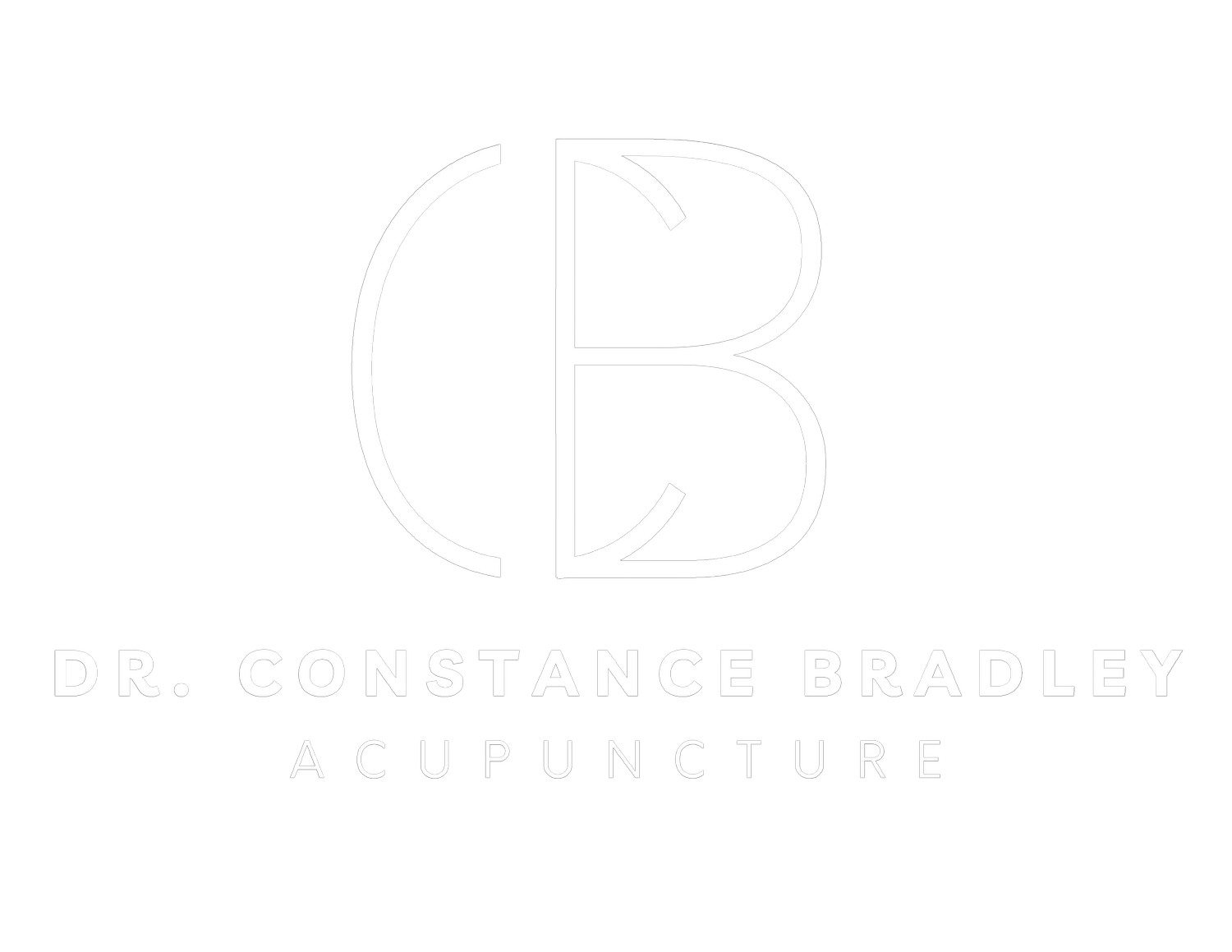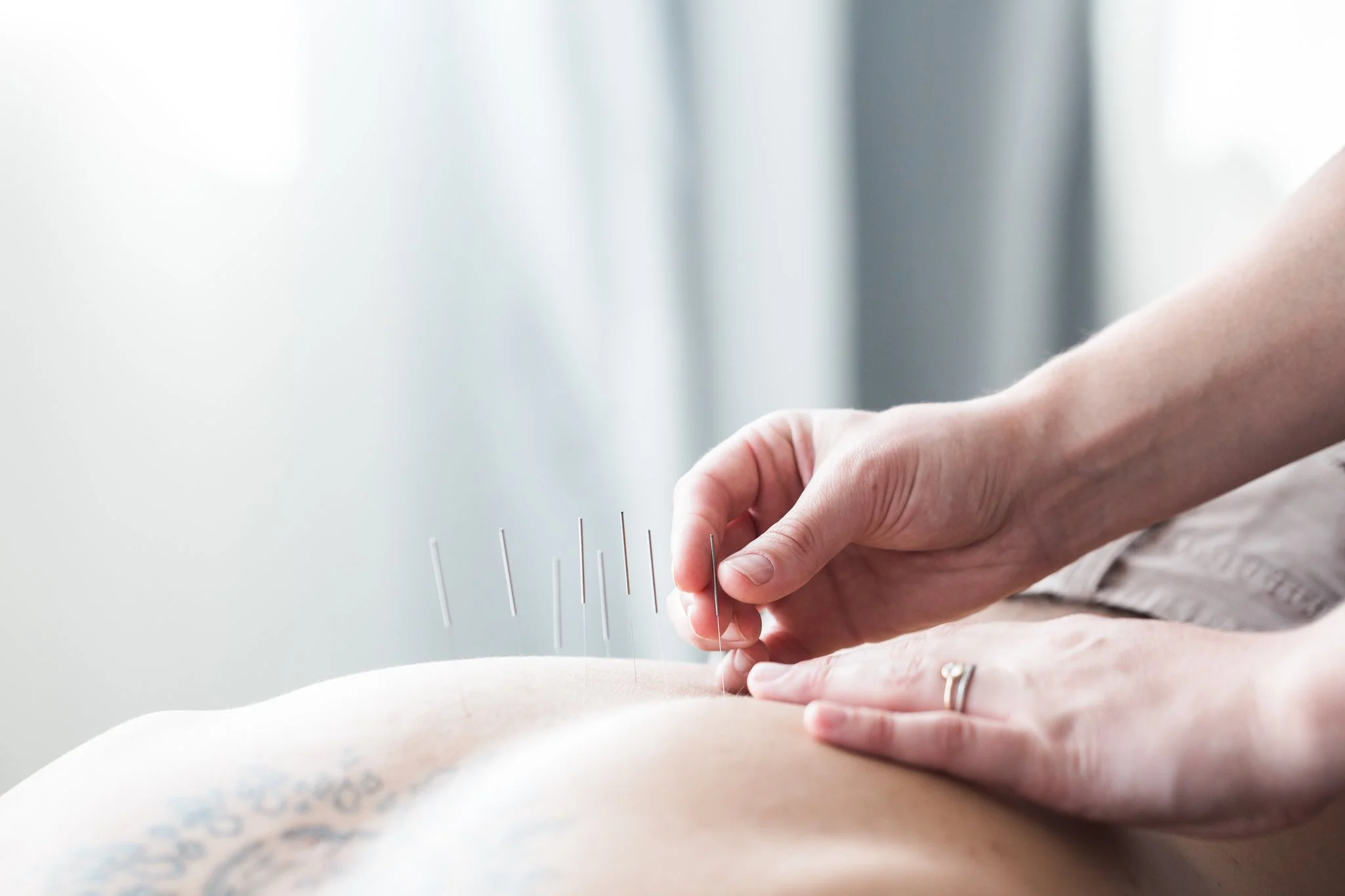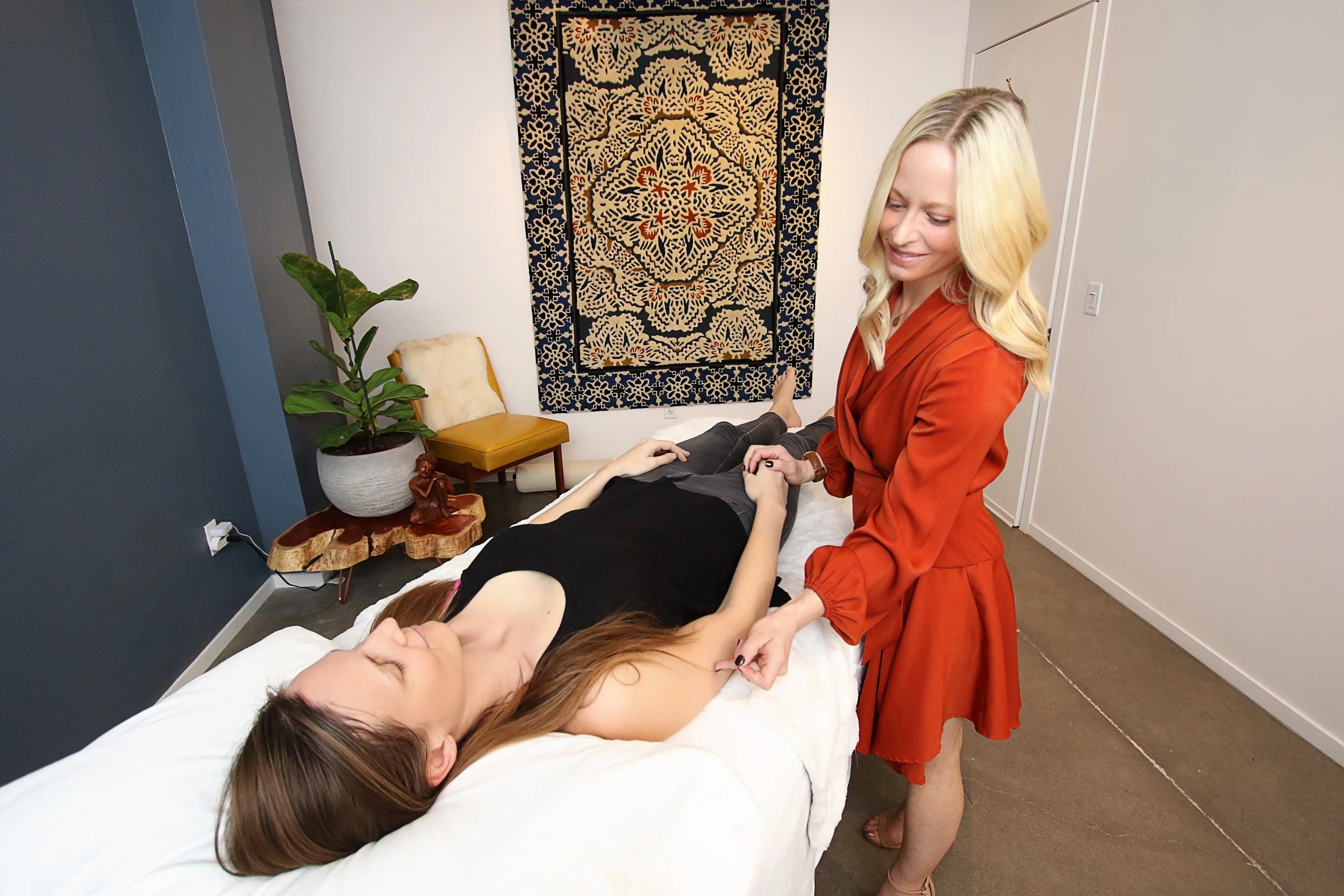
Result Driven Acupuncture in Scottsdale, AZ
Acupuncture and Traditional Chinese Medicine are integrative medical modalities that consider everything within the human body as interconnected; no single part can be separated from the whole. Acupuncture thus achieves balance in the body by simultaneously addressing a person’s physical, emotional, and mental health.
Dr. Constance Bradley Acupuncture in Scottsdale, AZ carries forth the core tenets of this holistic ideology with every treatment by providing each patient with the individual attention necessary to enable and promote their well-being.
Click here for general acupuncture FAQ.
Overview of Our Acupuncture Treatments
At Dr. Constance Bradley Acupuncture, we offer a range of specialized acupuncture treatments designed to meet your unique health needs. Our services include traditional acupuncture, point injections, and holistic therapies aimed at improving overall wellness. Whether you're seeking relief from pain, stress reduction, or support for fertility, our skilled practitioners are dedicated to providing personalized care tailored to your individual health goals. Discover how our comprehensive acupuncture services can enhance your well-being.
Pain Management and Relief with Acupuncture
Acupuncture is renowned for its effectiveness in managing and relieving various types of pain. At our Scottsdale clinic, we use acupuncture to address chronic pain, acute injuries, and conditions such as back pain, arthritis, and migraines. By stimulating specific points on the body, acupuncture helps reduce inflammation, improve blood flow, and promote natural healing. Experience relief and improved quality of life with our targeted acupuncture treatments for pain management.
Fertility and Reproductive Health Acupuncture
Support your fertility and reproductive health with specialized acupuncture treatments at Dr. Constance Bradley Acupuncture. Our therapies are designed to enhance reproductive function, regulate menstrual cycles, and improve overall reproductive health. Acupuncture can be an effective complementary approach for those undergoing fertility treatments or seeking to balance hormonal levels. Explore how our fertility-focused acupuncture services can assist in your journey towards optimal reproductive health.
Stress Reduction and Wellness Enhancement
Acupuncture is an excellent tool for reducing stress and enhancing overall wellness. By targeting specific acupuncture points, we help balance the body's energy and promote relaxation. Our treatments can alleviate symptoms of stress, anxiety, and depression, and contribute to a sense of well-being. Whether you're looking to manage daily stress or improve your mental clarity, our acupuncture services provide a natural and effective solution for enhancing your overall health and wellness.
Personalized Acupuncture Plans for Optimal Results
At Dr. Constance Bradley Acupuncture, we believe in the power of personalized care. Our practitioners create individualized acupuncture plans based on a thorough assessment of your health history and specific needs. This tailored approach ensures that each treatment is designed to address your unique health concerns and achieve the best possible outcomes. Discover how our customized acupuncture plans can help you achieve optimal results and improve your quality of life.
What Conditions Does Acupuncture Treat?
Acupuncture is most often used to treat pain. While it is extremely effective at providing pain relief, acupuncture is also a successful way to treat other physical and emotional ailments. According to the World Health Organization (WHO), the following symptoms, conditions, and diseases have been shown in controlled trials to treated effectively by acupuncture: [1]
Chronic and Acute Pain - Low back pain, neck pain, sciatica, tennis elbow, knee pain, shoulder pain, sprains, arthritis, facial pain (including craniomandibular disorders), headache, dental pain, tempromandibular (TMJ) dysfunction, rheumatoid arthritis, postoperative pain
Circulatory Disorders – Stroke, essential hypertension, primary hypotension
Respiratory Disorders- Allergic rhinitis (including hayfever), sore throat, cough, asthma, sinusitis, chronic colds/flu, bronchitis, respiratory tract infection
Gynecological Disorders- Primary dysmenorrhea, irregular, heavy or painful menstruation, PMS, vaginitis, infertility, morning sickness, induction of labor, malposition of fetus, menopausal symptoms
Decreased Immunity – Adverse reactions to radiation or chemotherapy, leucopenia
Digestive Disorders- Acute epigastralgia, peptic ulcer, acute and chronic gastritis, diarrhea, constipation
Emotional Disorders- Depression, Post-Traumatic Stress Disorder (PTSD), panic disorder, general anxiety disorder, stress, insomnia.
Can Acupuncture Help Me Even If I Feel Healthy?
Yes. Many patients seek regular acupuncture treatments to stay in peak condition so they can fully enjoy life.
Acupuncture is a preventative measure to keep patients healthy throughout the year. Acupuncturists see subtle signs of disease processes at work before symptoms begin to interfere with daily life. Acupuncture effectively addresses these issues, preventing future problems from occurring. Because acupuncture treatments are so deeply relaxing, many patients find regular, maintenance treatments beneficial for stress relief.
Acupuncture stimulates the body’s ability to resist or overcome illnesses and conditions by correcting imbalances and decreasing or eliminating painful sensations. Acupuncture influences a number of physiological functions such as release of endorphins by the brain, restoration of proper circulation in diseased areas, stimulation of hormonal glands, and regulation of immune system functions [2]. Acupuncture points are supplied by high concentrations of nerve endings and bundles, mast cells (used for immune function), lymphatics, and capillaries [3]. The acupuncture points have various functions, like stopping pain, stimulating immune function, or resolving phlegm (for coughs or runny noses). Using a system of pulse and tongue diagnosis, coupled with findings obtained by inquiring about related symptoms and physical exam, an Acupuncturist determines the pathology affecting the internal organs, muscles, skin and joints. A treatment protocol is then developed and needles are placed accordingly in order to resolve the patient's condition.
Does Acupuncture Hurt?
Generally, acupuncture does not hurt. Some patients feel the needles as they are inserted, others feel nothing. Acupuncture needles are solid, about the diameter of a human hair, and much thinner than hypodermic needles used at a doctor’s office. Patients often have sensations during the treatment that range from warmth or tingling to a brief ache or heaviness in the area being needled. These sensations are generally only felt on one or two of the acupuncture points and it indicates favorable results from the treatment. Most patients describe the experience as deeply relaxing and often fall asleep during treatment.
How Many Acupuncture Treatments Will I Need?
On average, patients come weekly for eight to ten visits, and then begin decreasing the frequency of visits as symptoms become more intermittent and later disappear. Once the condition has resolved, many patients choose to continue treatment for maintenance and preventative care. These maintenance visits can be monthly or quarterly, or semi-annually, depending on the patient's goal.
Are There Any Side Effects?
In 2001, the British Medical Journal published the results of two large-scale studies showing that the benefits of acupuncture far outweigh side effects of treatment. Post-treatment complaints were infrequent, minor, and short-lived, with no serious adverse events noted. The journal concluded that complications from acupuncture are "remarkably rare and transient" [ranging from 0.1% to 0.7%] especially when compared with the rate of adverse drug reactions or prescribing errors in primary care medicine, estimated at 0.5% to 6%[3].
1] World Health Organization. (2003). Acupuncture: Review and Analysis of Reports on Controlled Clinical Trials. Geneva World Health Organization.
[2] Kendall, D.E. (1989). Parts I and II: A scientific model of acupuncture, Am J Acupuncture 17(3):251-268, 343-360.
[3] MacPherson, H., Thomas, K., Walters, S., Fitter, M. (2001). The York acupuncture safety study: Prospective survey of 34000 treatments by traditional acupuncturists. BMJ: British Medical Journal, (323)7311:486-487.
“If you are considering acupuncture for your overall health and well being, look no further. Dr. Constance makes you feel SO welcome and that you have stepped into an experience of overall self care & love. It is more important now than ever you take time out for yourself and making an appointment with Dr. Constance will be a great first step in your journey.”
— Tina H., Client


